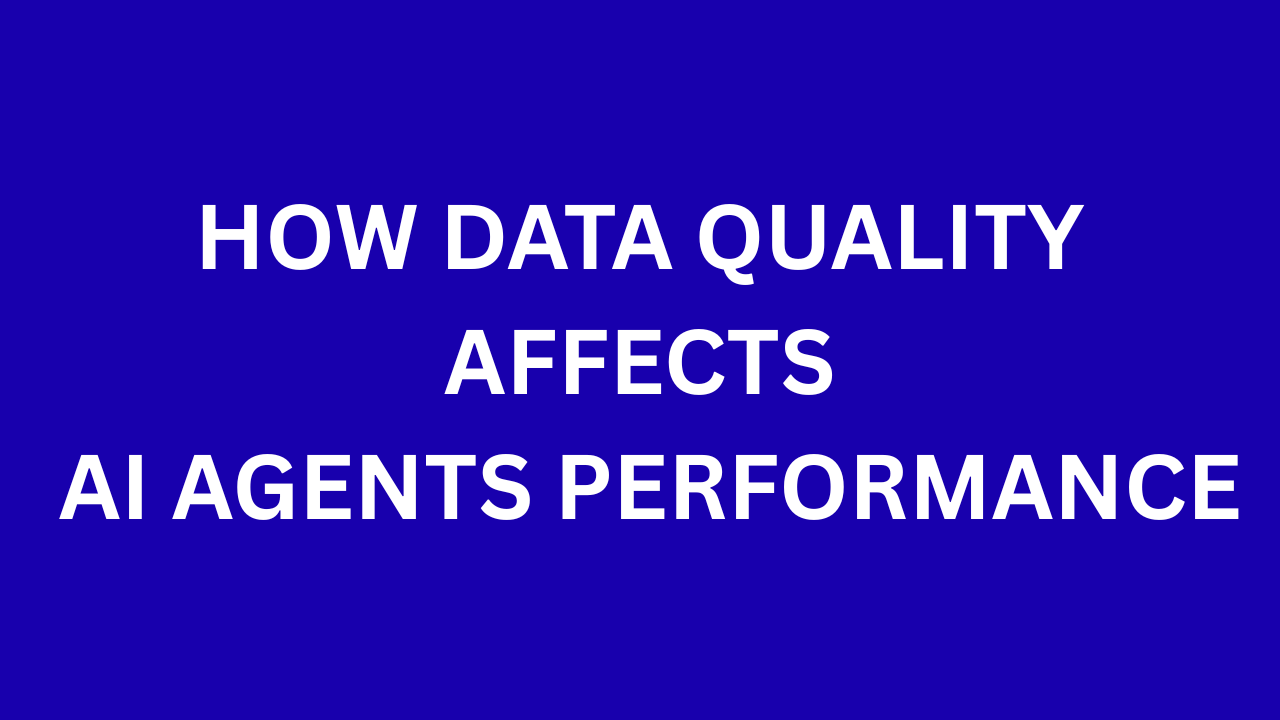How Data Quality Impacts AI Agent Performance
and How to Fix It with Modern Data Pipelines
AI agents are only as good as the data they consume. Without high-quality data, your AI agents will struggle to provide the right answers, automate tasks correctly, or generate insights that actually move your business forward. High-quality data, however, isn’t one-size-fits-all, it depends on the scenario and the goals of the AI system.
Today, we explore why data quality is critical for AI agent performance and how tools like Microsoft Fabric, Azure Functions, Azure Stream Analytics, and Confluent Cloud (Apache Kafka, Apache Flink, Kafka Connect, and Confluent Schema Registry) can help you build real-time, reliable data pipelines that deliver trustworthy information to your AI agents.
When your AI agent doesn’t have the right dataset, it won’t perform well. Data quality can break down in several ways:
Format issues: If data is delivered in inconsistent or incompatible formats, the AI agent can’t parse or contextualize it properly.
Incorrect information: Bad inputs lead to bad outputs. If the data itself is wrong, no AI agent can recover.
Timeliness: AI agents need fresh information. Stale or outdated data leads to inaccurate or irrelevant responses.
These issues translate directly into poor user experiences. Imagine asking an AI assistant for inventory levels, but it gives you last month’s data, or worse, it crashes because the schema didn’t match what it expected.
Data Pipelines as the Backbone of AI Readiness
To ensure AI agents operate on high-quality data, businesses need robust data pipelines that clean, validate, and deliver data in the right format and at the right time. That’s where modern platforms like Azure Functions, Microsoft Fabric, and Confluent Cloud come in.
Here’s how key technologies help:
Azure Functions
Serverless event-driven compute for lightweight data transformations.
Ideal for filtering, validating, and reformatting data before it’s pushed downstream.
Scales automatically as data volumes spike.
Azure Stream Analytics
Real-time analytics service for streaming data.
Useful for continuous query execution, aggregations, and anomaly detection before data ever hits your AI agent.
Integrates seamlessly with Azure Event Hubs, IoT Hub, and Power BI for dashboards.
Microsoft Fabric
An end-to-end analytics and data integration platform that unifies data engineering, data movement, real-time analytics, and business intelligence.
Data Factory in Fabric: Low-code/no-code pipelines for orchestrating and automating data flows from multiple sources into AI-ready destinations.
Real-Time Analytics in Fabric: Allows ingestion, querying, and monitoring of event streams, ensuring AI agents consume fresh insights.
OneLake: A unified data lake built into Fabric that centralizes storage, providing a single source of truth for AI and machine learning workloads.
Confluent Cloud (Apache Kafka/Flink Ecosystem)
Apache Kafka: A distributed event streaming platform for capturing and delivering high-throughput, low-latency data streams via efficient buffering technologies.
Apache Flink: A powerful stream processing framework that enables complex filtering, transformations, enrichment, and joins across multiple data streams.
Kafka Connect: Pre-built connectors for moving data in and out of Kafka with minimal coding effort.
Confluent Schema Registry: Ensures that producers and consumers of data agree on the data format, enforcing data contracts and preventing schema drift.
Together, these tools provide a reliable pipeline that moves data from multiple sources to the right destinations, in near real-time, while preserving schema integrity and giving AI agents the clean, trusted, and timely data they need to perform at their best.
Building the Right Data Flow for AI Agents
A typical workflow might look like this:
Capture data streams from diverse systems (heterogenous data sources).
Validate and transform data formats with Azure Functions or Flink.
Enforce schemas and data contracts using Confluent Schema Registry.
Stream in real time via Kafka topics and Azure Stream Analytics.
Sink data into Azure Cosmos DB, Azure AI Search, or Blob Storage, ready for AI agents.
Serve requests where AI agents consume timely, structured, and correct data to deliver accurate responses.
By following this model, AI agents always have the context-rich, up-to-date information they need.
Conclusion
High-quality data isn’t optional, it’s the foundation of AI agent performance. Without it, AI assistants risk becoming unreliable or irrelevant. By leveraging Azure Functions, Microsoft Fabric, Azure Stream Analytics, and Confluent Cloud, organizations can design resilient data pipelines that capture, validate, and deliver the right data to AI agents in real-time.
With strong data quality practices, your AI agents will consistently deliver timely, accurate, and context-aware results, turning AI into a trusted partner rather than a frustrating experiment.

